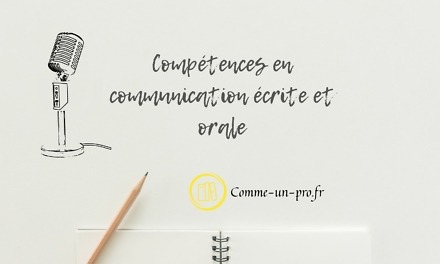Email often allows us to communicate more. As a result, the Internet is full of tips for writing better, lists of reasons to avoid sending emails at certain times, or advice on how quickly we should respond, etc. However, the best way to save time and avoid confusion might be to remember that some conversations cannot take place over email, here are some examples.
When you pass on bad news
It's not easy to deliver bad news, especially when you have to pass it on to your boss or manager. But, there are several ways to minimize the difficulty. First of all, don't put it off and don't waste time; you must take responsibility and explain the situation thoroughly. Giving bad news via email is not a good idea, as it can be understood as an attempt to avoid conversation. You could send back the image of a person who is fearful, embarrassed or even too immature to be proactive. So when you have bad news to deliver, do it in person whenever possible.
When you're not quite sure what you mean
In general, it's good to strive to be proactive rather than reactive. Unfortunately, e-mail lends itself well to this kind of reflex. We feel compelled to empty our inboxes, with most emails requiring responses. So sometimes, even when we're not quite sure how we'd like to respond, our fingers start tapping anyway. Instead, take a break when you need to take one. Seek out more information on the subject, rather than answering before you really know what you think and what you would like to say.
If you feel tormented by the tone
Many of us use email to avoid having a difficult conversation. The idea is that this medium gives us the opportunity to write an email that will reach the other person exactly as we hope. But, too often, that's not what happens. The first thing that suffers is our efficiency; crafting a perfectly crafted email takes so much time. So, quite often, the other person won't read our email as we expected anyway. So, if you find yourself tormented by the tone when you write an email, ask yourself if in this case too it would not make more sense to handle this conversation face to face.
If it is between 21h and 6h and you are tired
It's harder to think clearly when you're tired, and emotions can also run high when you're in this state. So if you're sitting at home, and you're out of office hours, consider hitting save draft rather than the send button. Instead, write a first draft in draft, if it helps you forget about the problem, and read it in the morning before finalizing it, when you have a fresher perspective.
When you ask for an increase
Some conversations are meant to be had face-to-face, when you're looking to negotiate a raise, for example. This isn't the kind of request you want to make over email, mainly because you want it to be clear and it's a matter you take seriously. Also, you want to be available to answer questions about your application. Sending an email could send the wrong message. Taking the time to meet in person with your superior in these circumstances will bring you more results.



